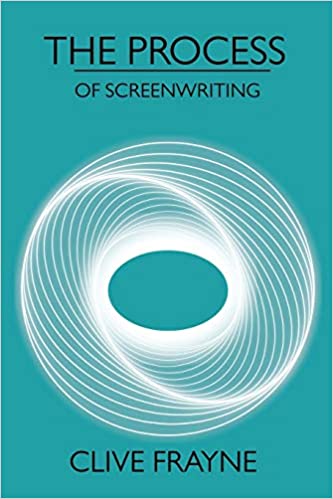I don't believe people read scripts solely, or even primarily, to learn "how to be a screenwriter." It's certainly not the only reason people read scripts.
Sure, you can emerge from a few scripts and probably be able to replicate formatting just fine. https://twitter.com/clivefrayne/status/1285877263830065152
Sure, you can emerge from a few scripts and probably be able to replicate formatting just fine. https://twitter.com/clivefrayne/status/1285877263830065152
Reading a dozen scripts should give you sufficient education on the format.
But I believe people read scripts for primarily three reasons. I don't think learning formatting or mining secrets to industry palatability is in this list. https://twitter.com/clivefrayne/status/1285877264979234816
But I believe people read scripts for primarily three reasons. I don't think learning formatting or mining secrets to industry palatability is in this list. https://twitter.com/clivefrayne/status/1285877264979234816
Even if true, there need not be a mutual exclusion principle at play. Writers, like most humans, are complexities and strange nuances and even contradictions. https://twitter.com/clivefrayne/status/1285877266069753856
1. We read scripts to be inspired by the masters of the craft. It's why we read books, essays, poetry, etc.
We are driven to see beauty and power in the things we manufacture. The screenplay need not simply be a blueprint, and even if it is--SO WHAT?
We are driven to see beauty and power in the things we manufacture. The screenplay need not simply be a blueprint, and even if it is--SO WHAT?
Architects build beautiful buildings from blueprints, but even blueprints hold a strange, mystical beauty, an arcane symbolism that confounds most of us, even while we accept it's a plan toward a more ambitious, holistic endeavor.
Like screenwriting is to filmmaking.
Like screenwriting is to filmmaking.
2. Craft technique - learn how the masters have done it, "in their own words." Not to copy, necessarily (though emulation is 100% something people consciously or unconsciously do). But there's poetry even in the mechanics of the format; moreso when handled by a true craftsperson.
Yes--we pick up on "tricks" this way. We see the way Wilder crafts multi-layered subtext and the way Gilroy constructs action like a sushi chef. We absorb Tarantino's meandering, yet meaningful dialogue and wonder--how can we do that in our own way?
We add a repertoire of creative assets to our toolbox not only because they work, but because we aspire to be like our heroes.
And here is where I agree with Clive. This isn't "the way" to set yourself apart.
But I find it's a necessary part of the journey as an artist.
And here is where I agree with Clive. This isn't "the way" to set yourself apart.
But I find it's a necessary part of the journey as an artist.
Good artists mimic.
Great artists steal.
But exceptional artists? They innovate.
With few exceptions, artists take this path because it's how we learn who we are, which leads us to...
Great artists steal.
But exceptional artists? They innovate.
With few exceptions, artists take this path because it's how we learn who we are, which leads us to...
3. To find ourselves. This might sound strange. How can you find yourself by reading other people's work?
How did you develop as a person? By consuming stories, poetry, art, music, films, etc. How did you develop your tastes and preferences? A combination of early exposure +
How did you develop as a person? By consuming stories, poetry, art, music, films, etc. How did you develop your tastes and preferences? A combination of early exposure +
your personality traits and influences led to you evolving into who you are and what you enjoy--not just consuming--but also creating.
Since screenplays aren't typically something you're exposed to until much later in life, it stands to reason that, to develop your tastes as a
Since screenplays aren't typically something you're exposed to until much later in life, it stands to reason that, to develop your tastes as a
writer, you must also read other screenplays.
I've dogged a bit on Clive's conclusions here. I respect the hell out of Clive--his book The Process is an intuitive and innovative way to think about crafting stories and ideas.
Clive's contributions to the screenwriting
I've dogged a bit on Clive's conclusions here. I respect the hell out of Clive--his book The Process is an intuitive and innovative way to think about crafting stories and ideas.
Clive's contributions to the screenwriting
and filmmaking community is immeasurable. He's a good bloke who mentors other writers and gives excellent guidance on approaching screenwriting as an organic, yet methodical process.
So, to make up for my slagging, go check out Clive's book https://www.amazon.com/Process-Screenwriting-Clive-Frayne/dp/1083083015/ref=sr_1_1?crid=32PU3FRVK9PB&dchild=1&keywords=clive+frayne&qid=1595417200&sprefix=clive+fra%2Caps%2C144&sr=8-1
Now go write!
So, to make up for my slagging, go check out Clive's book https://www.amazon.com/Process-Screenwriting-Clive-Frayne/dp/1083083015/ref=sr_1_1?crid=32PU3FRVK9PB&dchild=1&keywords=clive+frayne&qid=1595417200&sprefix=clive+fra%2Caps%2C144&sr=8-1
Now go write!

 Read on Twitter
Read on Twitter


